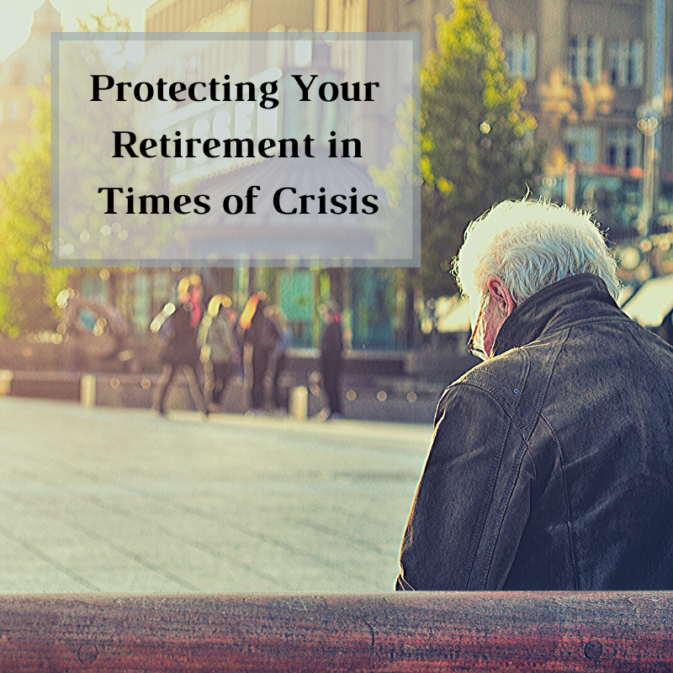By Peter Plevritis, Associate Advisor
Is your retirement plan immune from the coronavirus?
As coronavirus made waves in the news in late-February and early March that it was here in the United States, the stock market reacted. Since then, with glimmers of hope, we have seen a few bounces in the markets. This volatility can continue in the short-term in this ever-changing reality. This is why you should have a plan when it comes to your retirement and keep calm in times of uncertainty.
EVALUATE
When looking at your retirement plan, evaluate your asset allocation balance. Look at the balance of equities and fixed income within your portfolio. Depending on the number of years that you may have left until retirement, your mix of assets within your portfolio might include 50 percent in stocks and 50 percent in bonds. These percentages can be adjusted to become more conservative as you near retirement age and serve as a guideline, not a hard and fast rule. Limiting your overall exposure to the stock market is a good way to protect your portfolio in times of uncertainty. Bonds tend to have lower risks and, as a result, may work in your favor in volatile times. The saving grace for many people nearing retirement today is the fact that if their asset allocation mix might already be more weighted towards bonds, and since bonds do not normally experience the same volatility as the stock markets, you may be in a better position than you thought. It is a good time to take stock (pun intended) of your situation and evaluate your overall risk tolerance. If you are intending on retiring in the near future let this recent volatility serve as a wake-up call to ensure that you are allocated appropriately.
CONSIDER THE LONG TERM
If you are currently contributing to your 401(k) or other retirement plan per pay period, you might want to keep the same contribution amount that you are putting away. With security prices lower than they were at due to the volatility in markets, keeping the same contribution amount per pay period would let you take advantage of these prices and purchase securities at discounted levels. This strategy can lower the per share average cost of a mutual fund within your 401(k).
It can be daunting putting a time frame in place as we put away money into a retirement portfolio in hopes to retire “someday”, but a little planning, strategy, and discipline can help steer away from the emotional “knee-jerk” reaction to move your portfolio to all cash. Emotions keep people shorter-term focused. Stay the course, think Long-term, we will get through this!
CHECK YOUR EMERGENCY FUNDS
If you are worried about needing cash and having access to your 401(k) or other retirement account, first consider other sources for your needs. But if you need to access the cash, and the situation is dire, you previously could borrow up to $50,000 or 50% of your 401(k) balance. The recently passed CARES Act has relaxed provisions for loans or withdrawals from 401(k) plans for 2020. You can borrow up to $100,000 or 100% of your balance and pay it back over time. You can suspend payments for 2020, but will still pay interest on the loan. This interest would not be tax-deductible. You may also withdraw up to $100,000 early from a retirement account without the usual 10% penalty. You can spread the payback period on this option over the course of the next three years. If down the road you choose to pay the funds back, it would be treated as a rollover for as long as three years after the distribution. However, these withdrawal provisions do not apply to everyone, they are for individuals who have been impacted directly by the pandemic either financially or health-wise. You can check with your retirement plan administrator to see whether these loan provisions have been adopted by the plan, as not all are required to.
It is always important to have a cash reserve on hand in case of a job loss or unforeseen emergency. If you do not have an emergency reserve, this may be a solid time to start building one.
CONSIDER THE TIMING OF YOUR RETIREMENT
If retirement was or is in your plans for this year, a market downturn resulting in losses within your 401(k) means less income during retirement. Consider waiting to retire until there is a rebound in the market. A market downturn is a risk to your retirement account that can happen not only because of a virus, but it can happen because of political unrest, or general economic turmoil. I know this sounds unsettling, but a good plan and a good financial partner to talk things over with can help ensure that your retirement plans are not derailed.
WE WILL GET THROUGH THIS
Although we can never say for sure, historically, markets have bounced back from crises. Many are tempted to stop making contributions in hard times. Retirement accounts are meant for the long-term as a way to put money away for the future. There is nothing wrong with understanding that you have options to ensure that your near-term needs can be met, but keep your eye on the prize and avoid the panic if you can and stay the course.
Together, we will get through this.


